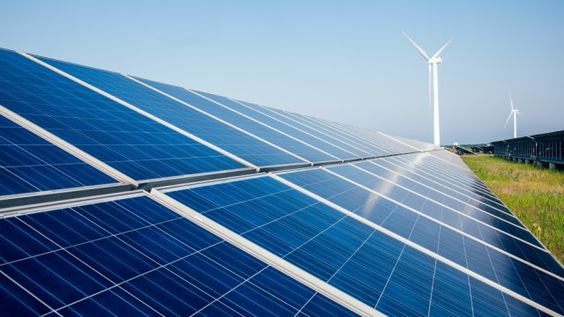In the quest for sustainable energy sources, solar system in Pakistan can play a significant role. Pakistan has taken significant strides towards harnessing the power of the sun through its solar system initiatives. The reality of the solar system in Pakistan unveils a promising future, where renewable energy plays a pivotal role in addressing the nation’s growing energy demands. In this article, we will delve into the intricate details of Pakistan’s solar system landscape, exploring its potential, challenges, and the transformative impact it holds for the nation.
The solar system in Pakistan is not merely an alternative energy solution but a transformative force that empowers communities, drives economic growth, and shapes a brighter future for generations to come. With each solar panel installed and every ray of sunlight harnessed, Pakistan takes a step closer to a sustainable and energy-independent nation.

Reality of Solar System in Pakistan
Harnessing the Sun’s Potential
The solar system in Pakistan has witnessed remarkable growth over the years, with the government and private sector actively embracing the potential of solar energy. Pakistan’s geographical location, blessed with abundant sunlight throughout the year, presents an ideal opportunity to tap into the sun’s renewable power. The perplexity lies in the complex integration of solar solutions across the country, from residential rooftops to vast solar farms.
Initiatives such as the Quaid-e-Azam Solar Park in Bahawalpur, one of the largest solar parks in the world, highlight Pakistan’s commitment to harnessing solar energy and enhance solar system in Pakistan. With an ambitious target of generating 30% of its energy from renewable sources by 2030, the country has set its sights on creating a sustainable energy ecosystem that reduces its reliance on fossil fuels.
Challenges and Triumphs
Despite the significant progress made in the solar system in Pakistan, the country faces a range of challenges that demand a brute-force approach to overcome them. One of the key obstacles is the initial high installation cost associated with solar systems. However, the government, in collaboration with international partners, has introduced various financial incentives and subsidies to promote solar adoption, making it more accessible to the masses.
Another bruteness factor lies in the intermittent nature of solar power. Pakistan’s energy infrastructure requires careful planning and investment to ensure a smooth integration of solar energy into the national grid. The government’s efforts in expanding the transmission and distribution network, coupled with advanced energy storage technologies, are crucial in addressing this challenge.
Transformative Impact: Pioneering a Sustainable Future
The reality of the solar system in Pakistan extends beyond immediate challenges, paving the way for a sustainable future. By embracing solar energy, the nation can reduce its carbon footprint, mitigate the effects of climate change, and achieve energy independence. Solar-powered solutions bring electricity to remote areas, improving the quality of life and providing opportunities for economic growth.
Moreover, the solar system in Pakistan creates a favorable environment for innovation, research, and job creation. It encourages the growth of a skilled workforce in renewable energy technologies, opening doors for entrepreneurship and attracting investment in the sector. This transformative impact has the potential to position Pakistan as a regional leader in renewable energy, fostering partnerships and collaborations with global players.
Islamabad’s Solar Streetlights Initiative
This article will delve into the world of solar power in Islamabad, highlighting the best installations that are paving the way for a greener and more energy-efficient future.
To enhance safety and reduce energy consumption, Islamabad Metropolitan Corporation has undertaken an ambitious solar streetlights initiative. Across various neighborhoods and public spaces, traditional streetlights are being replaced with solar-powered counterparts. These eco-friendly streetlights not only illuminate the city’s roads but also contribute to reducing the overall energy demand. This initiative showcases the city’s commitment to sustainability, making Islamabad a safer, greener, and more energy-efficient place to live.
As the capital city of Pakistan, Islamabad is making remarkable strides towards sustainable energy solutions, with a particular focus on solar power. The city’s commitment to embracing renewable energy sources has led to the emergence of several exemplary solar installations.
Solar Solution at Faisal Mosque
The Faisal Mosque, an iconic landmark of Islamabad, stands as a testament to the city’s dedication to sustainability. Its impressive solar installation demonstrates the integration of solar energy with architectural marvel. The rooftop of the mosque is adorned with solar panels, harnessing the abundant sunlight and providing clean electricity to power the mosque’s operations. This initiative not only reduces the mosque’s carbon footprint but also inspires the community to embrace renewable energy.

Best Solar Installation in Islamabad
As Islamabad continues to prioritize sustainable development, the city’s best solar installations stand as beacons of progress and inspiration. From iconic structures like the Faisal Mosque to residential communities, educational institutions, and public spaces, solar power has become an integral part of Islamabad’s landscape. These installations demonstrate the city’s commitment to reducing carbon emissions, increasing energy self-sufficiency, and creating a greener environment for its residents.
By embracing solar system in Pakistan, Islamabad not only sets an example for other cities but also becomes a role model for sustainable urban development worldwide. The best solar installations in the city highlight the multifaceted benefits of solar power, including reduced reliance on the grid, lower energy costs, environmental conservation, and a positive impact on the quality of life.
As the capital city leads the way in solar adoption, it is essential to celebrate and replicate these successful installations. By encouraging public-private collaborations, offering incentives, and raising awareness about the benefits of solar power, Islamabad can inspire further growth in the renewable energy sector and contribute to Pakistan’s overall energy transition.
With each solar installation, Islamabad moves closer to achieving its vision of a sustainable, energy-efficient future. The best solar installations in the city serve as a testament to the power of solar energy in driving positive change, making Islamabad a shining example of environmental stewardship and sustainable development.
The solar system in Pakistan has seen significant growth in recent years, with both the government and private sector investing heavily in this renewable energy source. However, despite this growth, there are still several challenges and limitations that need to be addressed in order to make solar energy a more viable and sustainable option for Pakistan’s energy needs.
Lack of infrastructure
One of the biggest challenges facing the solar energy industry in Pakistan is the lack of infrastructure and supportive policies. While the government has taken steps to incentivize investment in solar energy, including offering tax exemptions and subsidies, these measures have not gone far enough to ensure widespread adoption of solar energy solutions. Additionally, many of the policies that are in place are not well-implemented, leading to poor quality installations and a lack of proper maintenance of solar power plants and systems.
Technical Expertise
Another issue facing the solar energy industry in Pakistan is the lack of skilled labor and technical expertise. Solar energy systems require specialized knowledge and training, and many of the workers in the industry do not possess the necessary skills or qualifications to ensure efficient and effective installations. Additionally, there is a shortage of experienced solar engineers and technicians to design and install solar energy systems, leading to a shortage of high-quality solar plants in the country.
Despite these challenges, there are several reasons why the solar system in Pakistan is poised for growth in the coming years. One of the key advantages of solar energy in Pakistan is its potential to provide electricity to remote and rural areas that are not connected to the national grid. This is an important consideration in a country like Pakistan, where many people live in rural areas and lack access to reliable electricity.
Cost of Solar Energy
The cost of solar energy has dropped significantly in recent years, making it a more economically viable option for both households and businesses. In fact, many companies in Pakistan are already using solar energy to power their operations, including factories, hotels, and malls. The potential for cost savings and energy independence make solar energy an attractive option for businesses looking to reduce their energy costs and improve their sustainability.
Abundant Sunshine
Another key advantage of the solar energy industry in Pakistan is the country’s abundant sunshine. Pakistan is located in a region with one of the highest levels of solar irradiance in the world, making it an ideal location for solar energy production. The solar potential of Pakistan is estimated to be around 2.9 million MW, which is more than the country’s total energy needs. With such a vast solar resource, it is no wonder that many experts believe that Pakistan’s future energy needs can be met through solar energy sources.
Conclusion
In conclusion, the reality of the solar system in Pakistan is one of growth and potential, but also challenges and limitations. While the country has made progress in developing its solar energy infrastructure, there is still much work to be done to ensure the widespread adoption of solar energy. Addressing issues such as policy implementation, skill development, and technical expertise will be critical in ensuring the success of the solar energy industry in Pakistan. However, with its abundant sunshine and strong potential for cost savings and energy independence, solar energy is likely to play a significant role in Pakistan’s energy mix for years to come.
The reality of the solar system in Pakistan paints a picture of resilience, innovation, and a sustainable future. By embracing the perplexity of solar solutions and addressing the bruteness of challenges, Pakistan is paving the way towards a cleaner and greener energy landscape. As the nation continues to invest in solar initiatives, strengthen its infrastructure, and promote solar adoption, it sets an inspiring example for other countries facing similar energy challenges.





